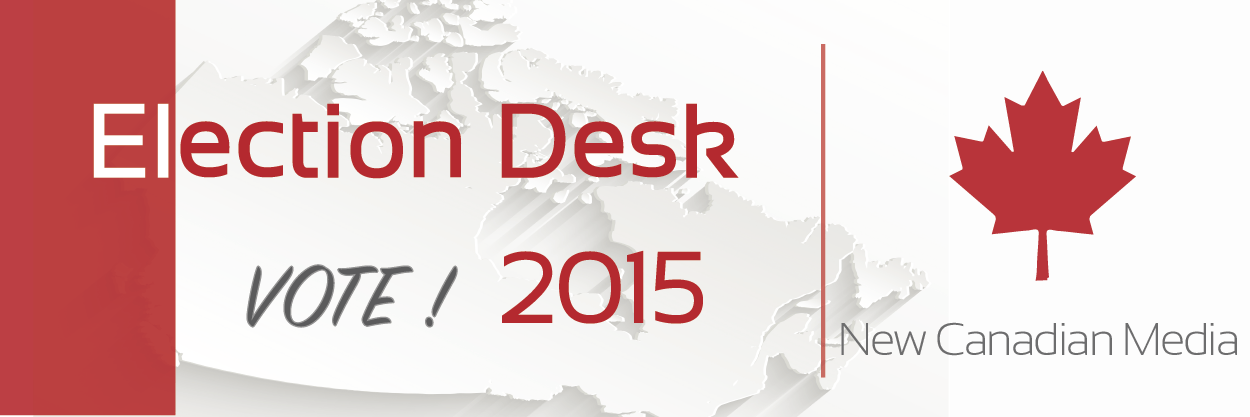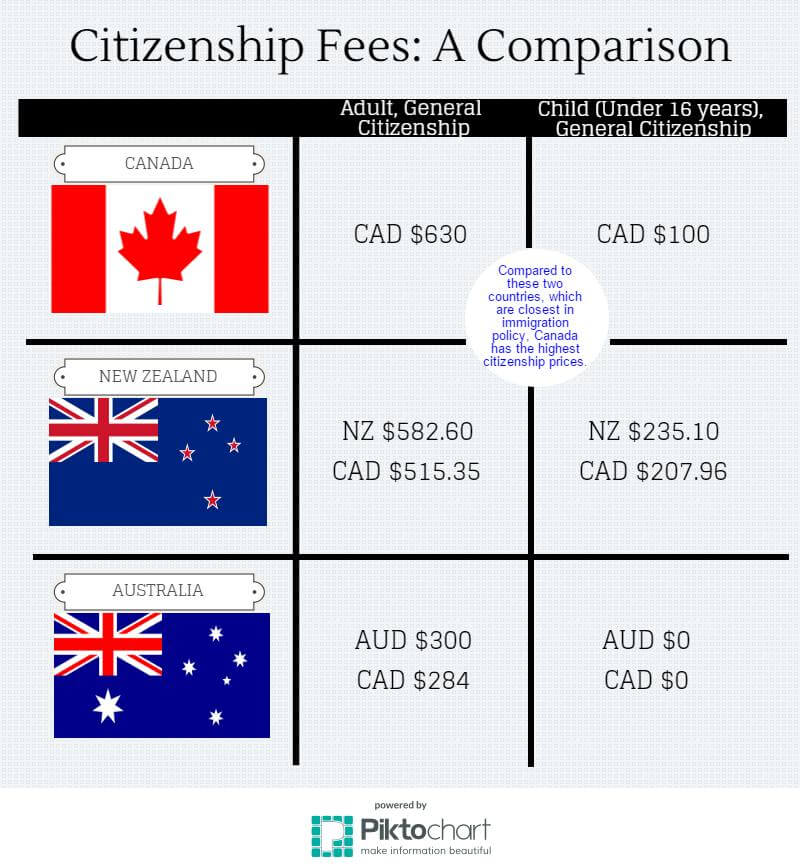 While citizenship, immigration and refugee policy have been major issues in the current election campaign, not much has been said about the three-fold increase in the cost of becoming a citizen imposed by the Conservative government.
While citizenship, immigration and refugee policy have been major issues in the current election campaign, not much has been said about the three-fold increase in the cost of becoming a citizen imposed by the Conservative government.
Both the Liberal party and the New Democratic Party (NDP) have talked about bringing about changes in the immigration process if elected, but have been non-committal on reducing the current $630 fee for an adult to become a citizen.
When New Canadian Media asked Liberal leader Justin Trudeau during a campaign stop about his party’s plans to ease the pathway to Canadian citizenship, he said his government would tackle these issues, including reviewing the application fee, “in a responsible way.”
In its own analysis, Citizenship and Immigration Canada (CIC) has said that “While [it is assumed] that there will not be a reduction in overall demand for citizenship as a result of the fee increase, it is acknowledged that some may be required to delay their application as they will need more time to save for the new fee.”
“$630 per person is a large sum of money to be charged [to] people who just recently started their lives from scratch.”
According to Statistics Canada, 14 per cent of university-educated immigrants who’ve come to Canada in the last five years are without a job, and those that have one earn, on average, 67 per cent of the amount their Canadian-born counterparts do. Many refugees, who often find themselves working low-paying jobs, will be unable to afford the high costs.
In February 2014, the government had increased the application fees from $200 to $400, the first ever price hike since 1995. These prices include the $100 right-of-citizenship fee, which is refunded if an application is rejected.
Then, citizenship application fees were quietly increased for the second time in one year through a Dec. 23, 2014 news release about reducing the backlog in citizenship applications.
‘Path to citizenship not a toll road’
Refugee advocates and others have denounced the steep fee increase arguing that it will place a great deal of pressure on the immigrant population.
In a May 12, 2014 committee hearing on the Strengthening Canadian Citizenship Act (Bill C-24), Bernie M. Farber, a founding member of the Jewish Refugee Action Network (JRAN), said “the government is tripling the application fee, which will be added to the new cost imposed on applicants a year ago when the government privatized language testing. The price of applying for citizenship will now cost four times more than it did in 2006.”
“The path to citizenship should not be a toll road,” added Farber. “Tapping some of the most vulnerable among us for user fees is nothing more than a cash grab that is both unseemly and counterproductive.”
Bruna Pizarro Aguiar, a 23-year-old immigrant working part time at a non-profit and a pizza franchise in Toronto, still doesn’t understand why the application fee has skyrocketed.
“When you move to a new country you have to put up with unforeseen challenges,” says Aguiar. “And four years is not enough time for people to get back up on their feet. $630 per person is a large sum of money to be charged [to] people who just recently started their lives from scratch.”

However, many immigrants are resigned to the fact that they have to pay up. “Most people who come to my office with citizenship applications say it’s annoying, it’s difficult, but we’ll pay it,” says Mary Keyork, a Toronto-based immigration, citizenship and refugee lawyer.
Fee increase part of more complex issues
Immigration Minister Chris Alexander justified the price increase by saying it will help speed up processing times.
A CIC press release said 260,000 people became new Canadians in 2014, double the number from 2013. It said the application backlog has been reduced by 17 per cent since June 2014.
Many media reports have suggested that the government has been trying to increase citizenship fees for some time so that would-be citizens would cover most of the cost of processing their applications.
Previously, immigrants only paid for 20 per cent of the cost, with the rest being borne by the federal government.
“[U]nlike in Australia, CIC offers no ongoing quarterly reports to show compliance.”
Based on citizenship projections from 2014, the additional fee increase could bring in an additional $60 million to the federal reserves in 2015. However, there has been little said about where the money will go and its impact on the CIC.
Andrew Griffith, former Director General for Citizenship and Multiculturalism and author of Policy Arrogance or Innocent Bias: Resetting Citizenship and Multiculturalism, argues that while the increased funding allowed the government to reduce processing times, “unlike in Australia, CIC offers no ongoing quarterly reports to show compliance.”
In an interview, Griffith suggested that one of the reasons the impact of the price hikes have not been investigated in full or held accountable is because they were part of other significant changes to the citizenship process that had larger implications in Bill C-24.
“These changes were more complex and controversial so the price hike just got buried in there,” says Griffith.




